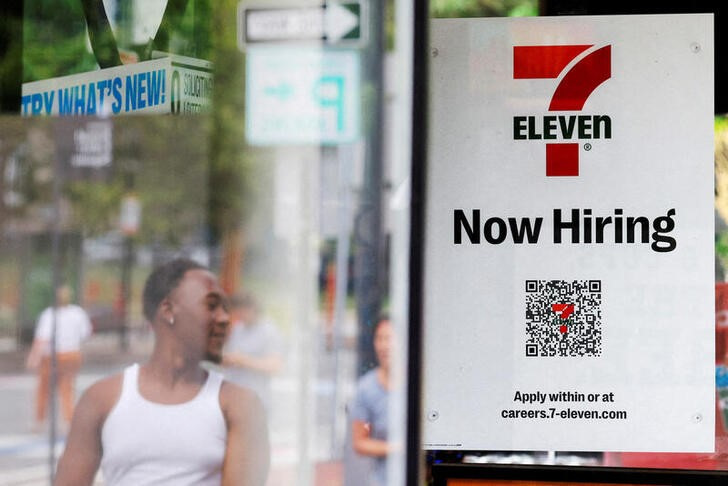The question of whether the 7-Eleven franchise operators are employees has been sent to the Massachusetts Supreme Court

[ad_1]

A 7-Eleven convenience store holds a sign in the window that reads “Now Hiring” in Cambridge, Massachusetts, US, July 8, 2022. REUTERS/Brian Snyder/File photo Obtain licensing rights
Aug. 30 (Reuters) – The Massachusetts Supreme Court has been asked again to decide whether 7-Eleven Inc.’s franchise operators can be considered employees of the company under state law, which would qualify them for minimum wage and other protections.
A three-judge US Court of Appeals panel in Boston on Tuesday asked the Massachusetts Supreme Court (SJC) to consider whether 7-Eleven’s franchises “do any service” to the company, one of the criteria for it to be considered employees. .
This decision marks the second time the first circuit has asked a state court to do so Decide on a new case It was raised in the case of 7-Eleven, where the franchisees claim that they are in fact glorified store managers and should be granted the protections afforded to employees under Massachusetts law.
Prosecutors are seeking to revive the case after a federal judge in Boston said last year that they could not be 7-Eleven employees because they did not provide a service to the company.
“We look forward to this important clarification of the law by the Supreme Judicial Council,” Shannon Liss-Riordan of Lichten & Liss-Riordan, which is representing the plaintiffs, said in an email.
7-Eleven did not respond to a request for comment.
Supreme Judicial Council last year Unanimously held In the event that state law defining when workers are employees or independent contractors can apply to franchise relationships.
The court rejected 7-Eleven’s claim that state law conflicted with a US Federal Trade Commission rule governing franchising.
Employees must be paid overtime and compensated for work-related expenses, among other costly legal requirements.
Business groups say treating franchisees as employees would destroy franchise businesses and limit opportunities for small business owners.
Courts in other states have applied worker classification laws to franchisees, but last year’s Supreme Judicial Council ruling was the first by an appeals court to explicitly reject claims that those laws contradict FTC rule.
The First Circuit returned the case last year to US District Judge Nathaniel Gorton in light of the Supreme Judicial Council’s decision.
In dismissing the case, Gorton said that because the franchisees run their own independent businesses, they do not provide service to 7-Eleven.
The First Circuit Committee said in its unsigned opinion on Tuesday that because the Supreme Judicial Council never addressed the meaning of “performing any service,” he should be given the first opportunity.
The committee said the case “affects countless sectors of workers and employers throughout the Commonwealth, and that the political considerations at stake do not directly favor a particular outcome”.
The panel includes Circuit Judges Lara Montecalvo, Bruce Celia, O. Rogerie Thompson.
The case is Patel v. 7-Eleven Inc., First Circuit U.S. Court of Appeals, No. 23-1043.
For the plaintiffs: Shannon Les Riordan of Lichten and Les Riordan
For 7-Eleven: Norman Lyon of DLA Piper
Read more:
In the 7-Eleven case, the Massachusetts Supreme Court says franchisees can be employees
Judges are reluctant to apply labor laws to 7-Eleven franchisees
Our standards: Thomson Reuters Principles of Trust.
[ad_2]
Source link




